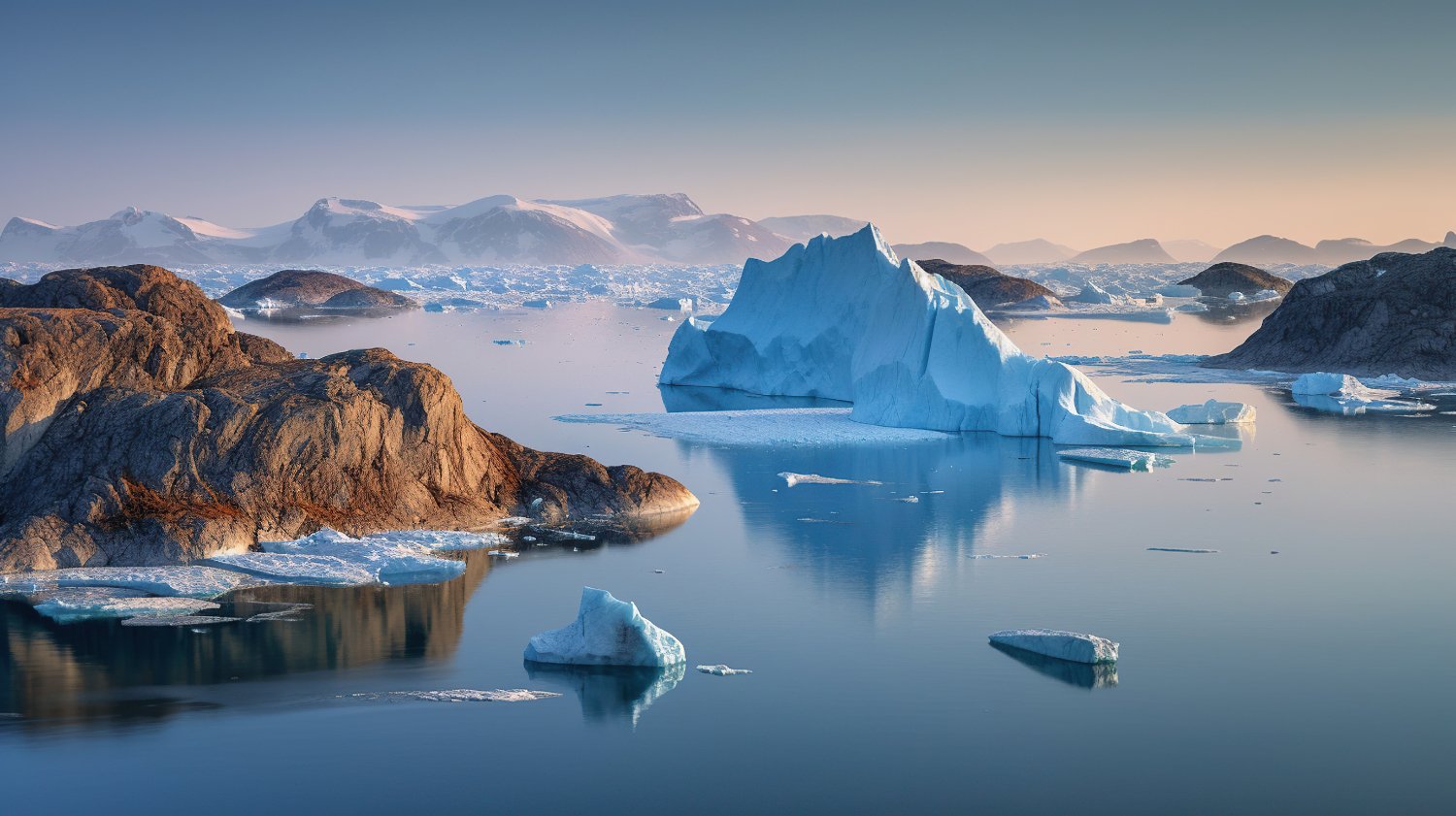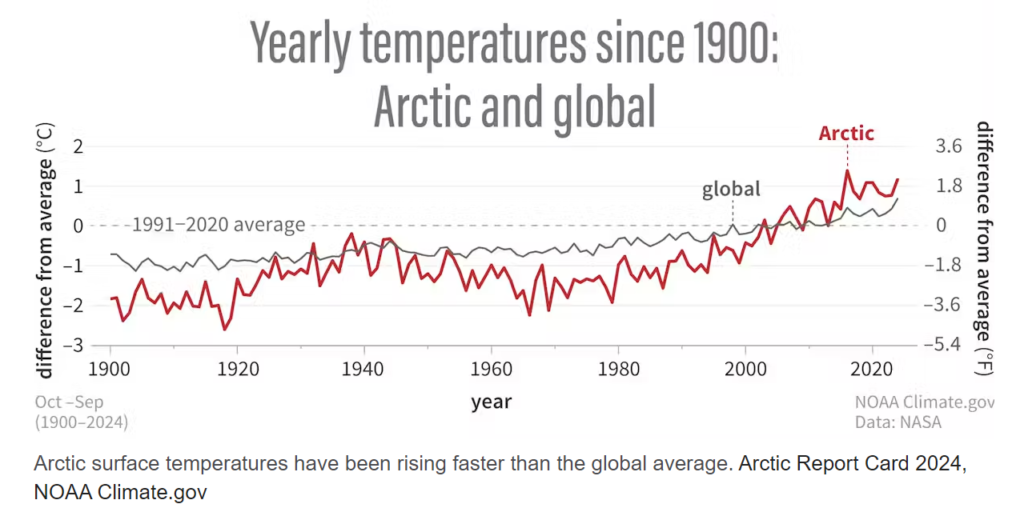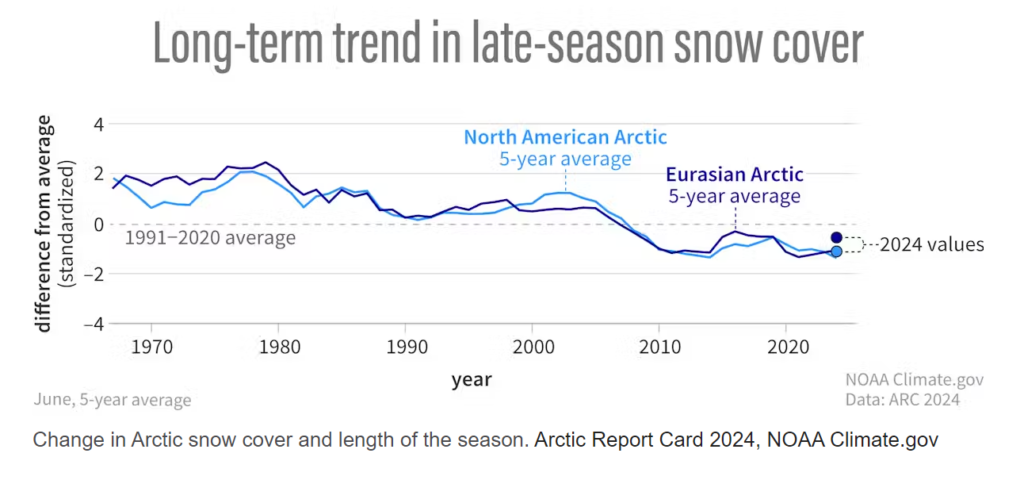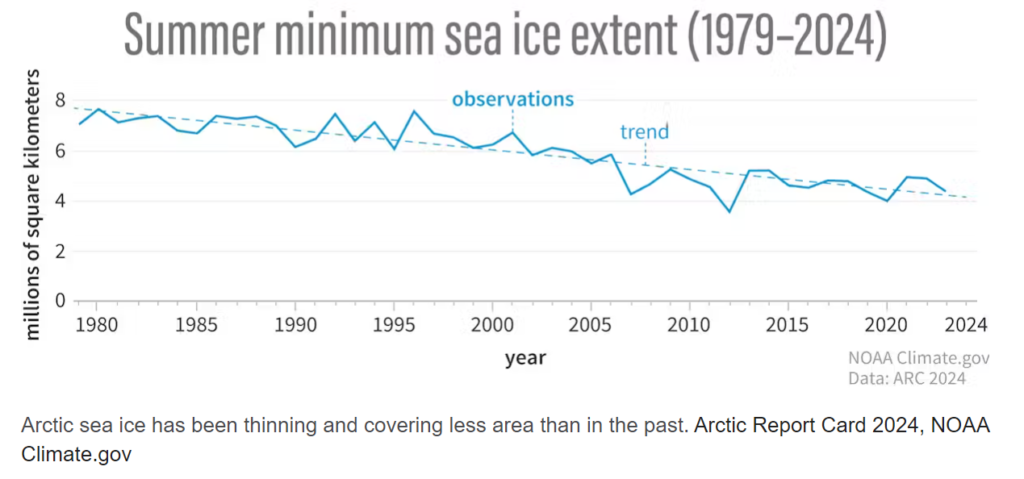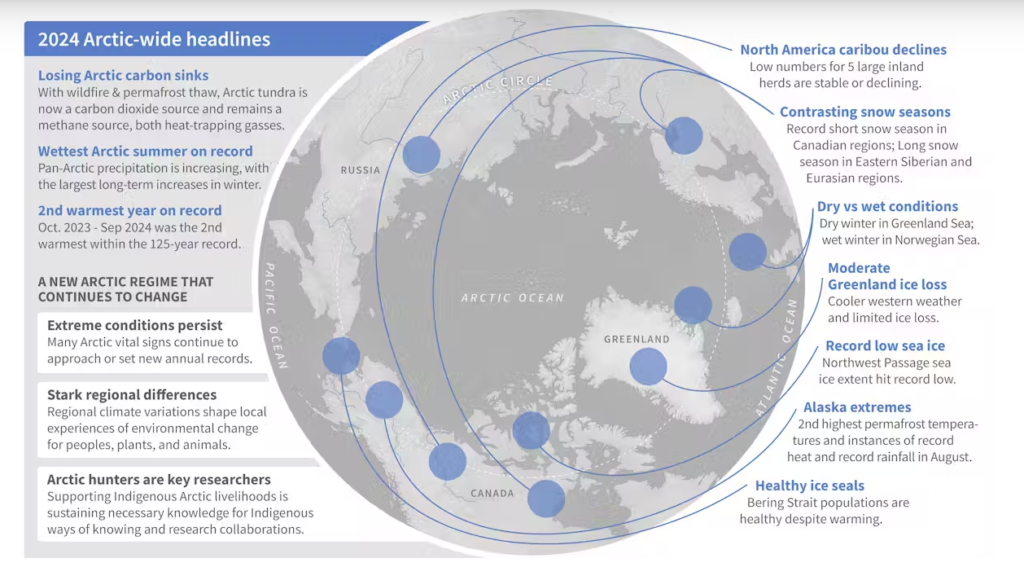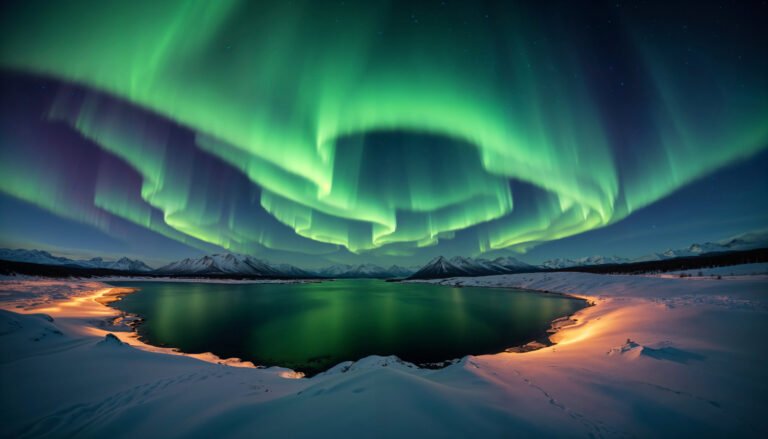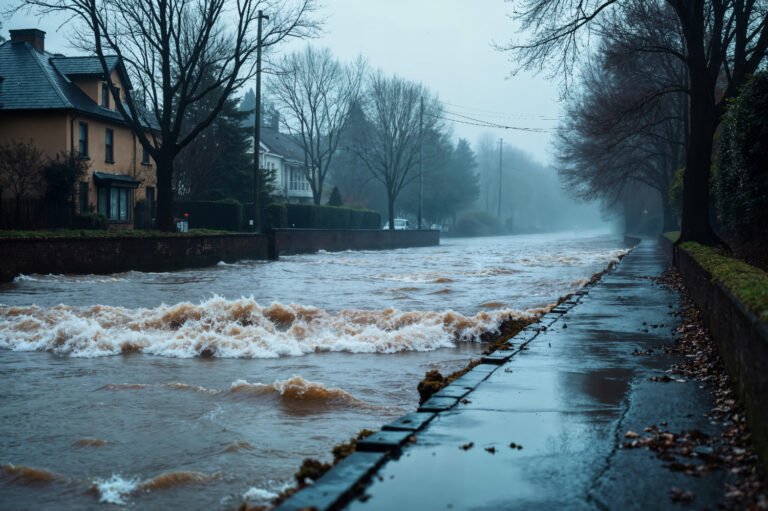Arctic Report Card 2024: Rapid Environmental Changes and Emerging Challenges
The 2024 Arctic Report Card, released by the National Oceanic and Atmospheric Administration (NOAA), highlights significant and accelerating environmental transformations in the Arctic region. Key findings include record-high surface air temperatures, unprecedented sea ice loss, increased wildfire activity, and the Arctic tundra shifting from a carbon sink to a carbon source. These developments have profound implications for global climate patterns, ecosystems, and human communities, underscoring the urgent need for comprehensive climate action.
Important Points
- Record Temperatures: The Arctic is warming at approximately four times the global average, with 2024 marking one of the warmest years on record.
- Sea Ice Decline: The region is projected to experience its first ice-free day before 2030, earlier than previously anticipated.
- Wildfires: There is an increase in the frequency and intensity of wildfires, contributing to higher greenhouse gas emissions and further warming.
- Permafrost Thaw: Thawing permafrost is releasing significant amounts of carbon dioxide and methane, exacerbating climate change.
- Ecosystem Impacts: Changes in sea ice and temperature are affecting marine and terrestrial ecosystems, including shifts in species distributions and habitat loss.
Read More Here: Arctic Report Card 2024: Rapid Environmental Changes and Emerging Challenges

